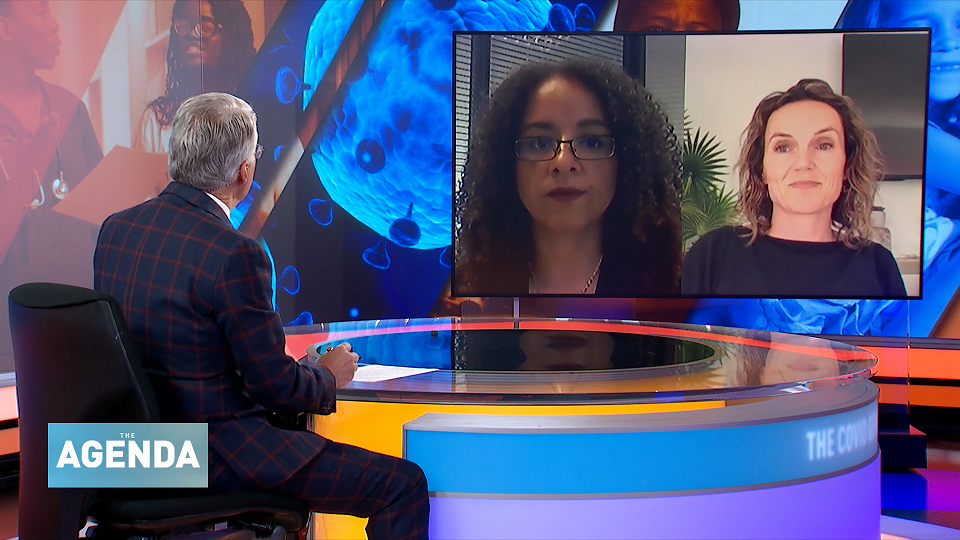08:17

WHAT'S THE ISSUE?
Equal pay has been one of the key battlegrounds in the fight to close the gender gap. The latest statistics suggest that this year on average, women will still earn only 82 cents for every $1 earned by a man.
And the pandemic has only exacerbated the gender pay gap, as women are more likely than men to work in sectors devastated by national lockdowns – like hospitality. Working mothers are also more likely to care for children sent home by school closures than working fathers.
Equality campaigners Rachel Verdin and Wanda Wyporska join Stephen Cole to discuss why, years after most developed nations introduced equal pay legislation, women still seem to be getting a rough deal in the workplace.

MEET THE EXPERTS
Wanda Wyporska is Executive Director of The Equality Trust, a charity that campaigns to reduce social and economic inequality. She is also a Visiting Research Fellow at the University of York and a trustee of the Association of Chief Executives of Voluntary Organisations (ACEVO). Wanda was appointed as an Equalities Advisor to the Greater London Authority (GLA) London Recovery Board and sits on the GLA's EDI Advisory Group, the ONS Inclusive Data Taskforce, and the Fight Inequality Alliance Steering Group.
Rachel Verdin is currently in her final year of research at the University of Sussex Business school, evaluating the current efforts, both legislative and organizational, targeted at gender pay inequality. Prior to that, she worked for 15 years as an Organizer and Membership Development Officer for the GMB trade union in the UK.

WHAT DO THEY SAY?
"The pandemic has pulled back the veneer on the inequalities that were already bubbling away," said Verdin. "We know that women still take home by far the majority of caring and domestic responsibilities. COVID-19 has amplified those challenges and brought them to the fore."
And on the subject of pay, Wanda Wyporska suggests there's a real problem of secrecy: "Companies [need to] have transparency around pay and discrimination, A transparent structure would bring a lot more equality into our workplaces, as well as, for example, showing salary when you're advertising jobs."
And along with transparency, if covid has taught us anything, it's that flexibility in the workplace is essential, especially for working mothers. As Rachel tells Stephen: "The idea around flexibility at work has been bounced around for years now. COVID-19 has proven quite inadvertently that it's possible and can be a real game-changer."

WHAT'S NEXT?
So is there a chance that this is one of the areas where we can build back better post-COVID-19? "I'd like to think so," says Wyporska. "unfortunately, history tells us otherwise, this is about a bigger issue. It's about childcare. It's about caring responsibilities. It's about stereotypes."
Verdin agrees, "We've seen during COVID a real lack of focus on women and women's needs in policy planning. There's a real need for a gender agenda to ensure that the pay gap does keep closing. We need greater focus at a policy and government level."

ALSO ON THE AGENDA:
- Till Leopold, the head of Inclusive Economies Practice at the World Economic Forum's Centre for the New Economy and Society joins Stephen to discuss exactly how the Forum's latest Gender gap report concluded that COVID has pushed back gender parity by an entire generation.
- Professor Kate Maclean from the Centre for International Development at Northumbria University joins Stephen to explain why female political leaders – like New Zealand's Prime Minister Jacinda Ardern have come to the fore in this time of crisis.

